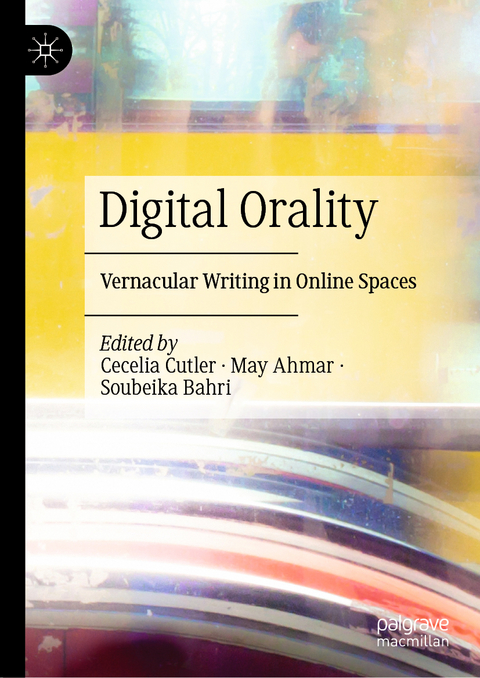
Digital Orality
Springer International Publishing (Verlag)
978-3-031-10432-9 (ISBN)
This volume showcases innovative research on dialectal, vernacular, and other forms of "oral," speech-like writing in digital spaces. The shift from a predominantly print culture to a digital culture is shaping people's identities and relationships to one another in important ways. Using examples from distinct international contexts and language varieties (kiAmu, Lebanese, Ettounsi, Shanghai Wu, Welsh English, and varieties of American English) the authors examine how people use unexpected codes, scripts, and spellings to say something about who they are or aspire to be. This book will be of particular interest to students and scholars interested in the impact of social media on language use, style, and orthography, as well as those with a broader interest in literacy, communication, language contact, and language change.
Cecelia Cutler is a Professor in the Linguistics Program at The Graduate Center, City University of New York, New York, USA. May Ahmar is a Senior Lecturer in discipline in the Middle Eastern, South Asian, and African Studies Department at Columbia University, New York, USA. Soubeika Bahri is an Instructor in the Modern Language Department at the University of Colorado, Denver, USA.
Chapter 1: Introduction: A New Orality in the Digital Age.- Part I: Political and Identity Stances.- Chapter 2: Digital Orality? Reimagining and Reclaiming Vernacular Pronunciations Through Digitally Mediated Communication.- Chapter 3: Ettounsi and Tamazight Writing on Facebook: Oral Vernaculars or New Literacies.- Chapter 4: Ettounsi and Tamazight Writing on Facebook: Oral Vernaculars or New Literacies.- Chapter 5: Deviant Writing and Youth Identity: Transcription of Shanghai Wu Dialect on the Internet.- Part II: Performances of accents and styles.- Chapter 6: Orality, Alignment, and Stance in YouTube Comments About the New York City Accent.- Chapter 7: How Many s in Wales? Performing a Welsh Accent on Twitter.- Chapter 8: "You're in the gym to BUILD IT BIG, not have social hour": Performing Dumb Jock Masculinity on a Male Erotic Hypnosis Messageboard.- Chapter 9: Performing Politeness in Online Dating: How Orthographic Choices Signal Relationship Status.- Chapter 10: Implications of Digital Orality and New Directions.
"Brief description of the rationale behind the structure of the book is provided in the overall introduction, a dedicated theoretically framed opening for each major part is a useful aid to the reader in recognizing the theoretical and methodological correspondence of the individual chapters as the reason for grouping them together. I believe that engaging with the ideas of intersectionality and genre would make for useful introductions to each set of the chapters" (Alwin C. Aguirre, Language in Society, Vol. 53 (2), 2024)
| Erscheinungsdatum | 02.11.2022 |
|---|---|
| Zusatzinfo | XIX, 302 p. 30 illus., 17 illus. in color. |
| Verlagsort | Cham |
| Sprache | englisch |
| Maße | 148 x 210 mm |
| Gewicht | 549 g |
| Themenwelt | Geisteswissenschaften ► Sprach- / Literaturwissenschaft ► Anglistik / Amerikanistik |
| Geisteswissenschaften ► Sprach- / Literaturwissenschaft ► Literaturwissenschaft | |
| Geisteswissenschaften ► Sprach- / Literaturwissenschaft ► Sprachwissenschaft | |
| Sozialwissenschaften ► Kommunikation / Medien ► Medienwissenschaft | |
| Schlagworte | Identity • Language ideologies • Language in society • Online Communication • Oral communication • Orthography • Qualitative Analysis • social meaning • sociolinguistics of writing • Written Data |
| ISBN-10 | 3-031-10432-3 / 3031104323 |
| ISBN-13 | 978-3-031-10432-9 / 9783031104329 |
| Zustand | Neuware |
| Haben Sie eine Frage zum Produkt? |
aus dem Bereich


